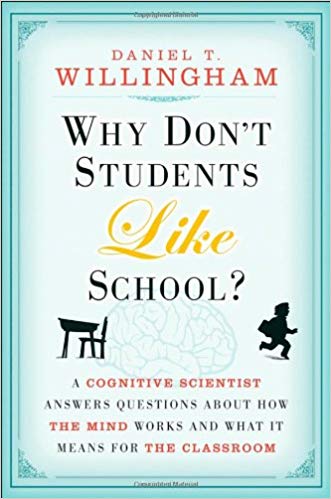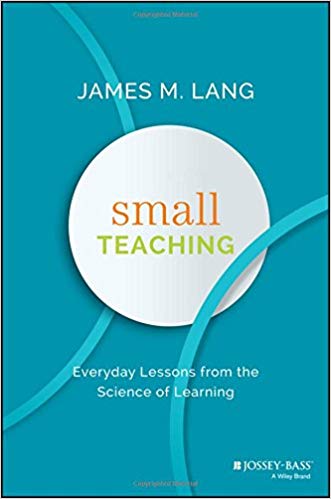Making the Most of a Short Semester
Congratulations on making it through a challenging academic year. We hope you have plans for some well-deserved rest.
But if you’re teaching this summer, you’re probably already refining your plans. “Compressed” or “intensive” classes, like those in summer B or C, challenge us to distill our courses to their essence. We can’t simply cram everything we usually assign into the shorter time frame: Instead, we have to prioritize, focusing on the course goals and how students can make the most progress toward them in six weeks.
Since most of us are excited about all of our material, it’s not easy to determine what’s truly most important: You might ask yourself what you’d keep if you had only one day to convey the most essential concepts of your course. What would you really want students to take away? What should they be able to do because they took your course? How should they be changed? Your answers will shape your learning goals, and an effective summer course will be built to help students achieve them.
The extended meeting hours of compressed summer courses also demand that we vary our strategies. Learning takes time and effort. It needs elaboration and practice, so galloping through masses of material won’t be terribly effective. Delivering a week of content in a three-hour marathon session will be counterproductive, and exhausting, both for you and for your overwhelmed students. Instead, students need multiple and varied opportunities to engage with the material and with each other. They’ll need to write, talk, solve problems, make predictions, analyze data, and dig into the concepts and skills they’re practicing.
Bill Kops (2009) studied faculty teaching summer courses and compiled a list of best practices, summarized below.
1) Restructure the course: The high-performing instructors in Kops’s study emphasized learning outcomes instead of content. They realized that their students should still achieve the same learning goals, but that they would have to reach these goals in different ways.
2) Organize and plan for the term: Even more than other semester formats, summer courses require detailed planning of the entire class from the start, which requires anticipating requirements, student questions, etc.
3) Reconfigure assignments: Longer assignments will need to be scaffolded and broken into shorter ones, in order to give the frequent feedback that students will need in order to keep up with the class. The reduced turnaround time for giving feedback makes it all the more important to break work into chunks.
4) Maintain expectations and standards: In contrast to the myth of the “easier” summer session, faculty must establish and maintain high expectations for all students.
5) Capitalize on continuity, smaller classes, and variety of students: Summer classes give you the valuable opportunity to get to know students, determine the extent to which they are learning, and vary your approach based on their individual interests, goals, and/or needs.
6) Maximize support to students: In addition to making yourself available to students (through longer and frequent office hours), it’s useful to provide students with reading and study guides, class notes, recommended links, etc. given the fast-paced nature of these classes. Additionally, you can help students to form study groups, and encourage them to use campus resources like ACE.
7) Keep students active and use a variety of teaching techniques: As Terry Doyle (2011) insists, “the one who does the work does the learning,” and in an extended session it’s all the more critical that your students do the work—not you. Medina (2008) reminds us that the human brain can maintain attention for about 10 minutes at a time. This means that using class time for content delivery (like lecturing) will overtax your students’ cognitive resources, and overtax you. It will be more productive to structure your daily lesson in small segments, using a variety of teaching techniques that offer students the opportunity to move around, discuss course material and problem-solve with their classmates.
Best wishes for a restful and productive summer!
Upcoming…
Although this is our last weekly message until August, we’ll be open over the summer, and eager to support you. We’re hosting three faculty reading groups (described below). If you’d like to retool your course, develop new assignments, examine your exams, or anything else, we’re happy to be of assistance. If you’d like support in interpreting and responding to student evaluations, we can help with that, too.
Summer Reading Groups
Faculty reading groups are a great chance to connect with colleagues from across the university, delve into the research on learning, and share practical strategies for making your classes even more effective. Each group will involve a series of three meetings, so please check your calendar to make sure you can attend. Space is limited. RSVP here, and we’ll send you your complimentary copy of the book. We look forward to working with you!
 Why Don’t Students Like School?: A Cognitive Scientist Answers Questions About How the Mind Works and What It Means for the Classroom
Why Don’t Students Like School?: A Cognitive Scientist Answers Questions About How the Mind Works and What It Means for the Classroom
Thursdays, 2:00–4:00
5/23, 5/30, 6/6
In this entertaining and informative book, Daniel Willingham shares highlights from his research into the brain basis of learning and memory, and describes the application of cognitive psychology to education. His book can help us enhance our teaching by explaining how we (as experts) and our students (as novices) think and learn. Willingham discusses the importance of story, emotion, memory, context, and routine in building knowledge and creating lasting learning. Participants will generate concrete ideas for their own classrooms.
 Small Teaching: Everyday Lessons from the Science of Learning
Small Teaching: Everyday Lessons from the Science of Learning
Wednesdays, 2:00-4:00
5/29, 6/5, 6/12
How do I get my students’ attention? How do I help my students to go deeper, expand their ability to analyze and feel empowered by their own learning? James Lang’s newest book explores the science of learning and shares with us small changes we can make that will have a powerful influence on our students’ learning. Join us as we learn the tools and techniques to help us answer these and other teaching and learning questions.
 Race Talk and the Conspiracy of Silence: Understanding and Facilitating Difficult Dialogues on Race
Race Talk and the Conspiracy of Silence: Understanding and Facilitating Difficult Dialogues on Race
Tuesdays, 2:00–4:00
7/2, 7/9, 7/16
Faculty often feel unprepared for the difficult dialogues or inter-group conflicts that may arise in class, but navigating these discussions is important for students’ learning and for maintaining a productive classroom environment. Derald Wing Sue’s book unites quantitative and qualitative research, providing numerous examples and analyses of complex and challenging conversations. This reading group will use his analysis and advice to interpret dynamics in our own classrooms and prepare to handle them more effectively.



